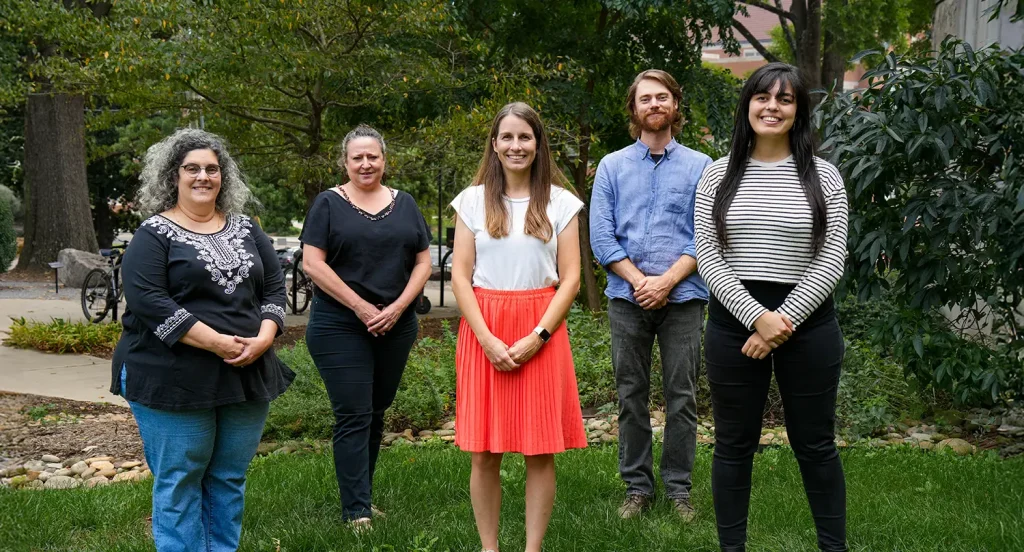New UT Institute Leads Climate Studies for Community Concerns

The Institute for Climate and Community Resilience (ICCR) launched in July 2024 along with a set of new collaborative research initiatives for the UT College of Arts and Sciences and partners across the university. The ICCR builds on the skills and expertise of UT faculty to advance climate science and create equitable solutions for climate risks that span from regional Appalachian concerns to global communities.
The ICCR will be UT’s and the region’s first large-scale, organized, and interdisciplinary climate research institute. Associate Professor Kelsey Ellis, Department of Geography and Sustainability , directs the institute with leadership support from four key faculty members:
- Annette Engel, the Donald H. and Florence Jones Professor of Aqueous Geochemistry, Department of Earth, Environmental, and Planetary Sciences ;
- Gabe Schwartzman, assistant professor, Department of Geography and Sustainability;
- Lisa Zottarelli, clinical associate professor, UT College of Social Work;
- Emine Fidan, assistant professor, UTIA Department of Biosystems Engineering and Soil Science.
Collaborative Community
Ellis invited these four collaborators based on their blend of expertise, research approaches, and experiences. The team developed the concept for the ICCR and proposed it to the college.
“In the same spirit of the institution, where we aim to bring together faculty from across campus who have never worked together, the five of us have all done work in climate or climate-adjacent areas—but never together,” said Ellis. “We hope to attract faculty and students across campus from a variety of backgrounds who have an interest in applying their skills and knowledge to issues in climate science and community resilience.”
The ICCR will address three strategic areas in building climate resilience: challenges in climate system science, compounding risks associated with climate change, and community-driven solutions.
“We expect to engage, support, and host collaborative faculty and students from across campus, starting at a kickoff event where we will introduce a call for faculty fellows, invite attendees to join a community of scholars, and support the networking of faculty and students,” said Ellis.
They will build a core team of institute-funded faculty fellows and scholars to support idea generation for proposals for externally funded research.
Diverse Backgrounds, Shared Goals
“Tackling climate science problems requires interdisciplinary, collaborative teams,” said Engel. “I’m thrilled that the ICCR will build a community of scholars and provide programming to increase opportunities for natural and social scientists to interact with each other. Too often, scientists can become siloed because it is difficult to connect with others outside of our disciplines.”
As a geoscientist, Engel’s research is focused on fundamental geochemical processes and reactions that affect life on Earth.
“I study how past and current changes to Earth’s climate affect environmental resources like water and soil,” she said. “Humans also have the capacity to alter the distribution of land, water, and life, which by extension can also affect Earth’s climate. My research examines the causes of climate change that led to the impacts being faced by our communities.”
She looks forward to working with the initial interdisciplinary team and growing the ICCR network of UT faculty.
“Each of us brings a unique perspective to the group,” said Engel. “I hope that our leadership, which draws from the natural and social sciences, will inspire others to want to join and participate.”
By Randall Brown